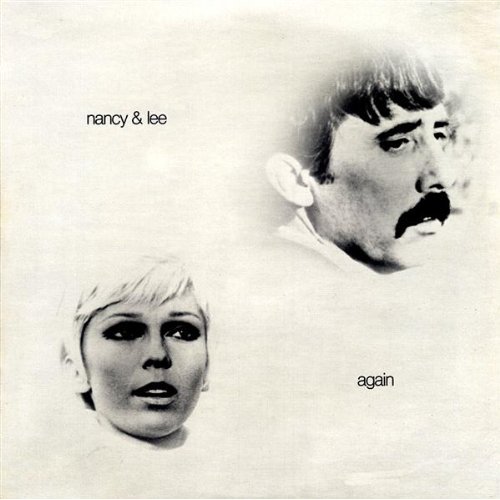I never much took to The Go! Team, that irrepressible band of racket-making Brighton-hailing noiseniks who suggested a 21st century vision of Big Beat by removing all of the lager and amyl-fuelled white boy funk angst and replacing it with lo-fi, rarely refined, twee day-glo white boy funk angst instead. Never have I heard anyone so brazenly eject all nuance, charm and surprise from the careers of the Dust Brothers and the musicians behind the soundtracks of The Littlest Hobo, Highway to Heaven, The Waltons and Knight Rider, and get away with toddler-level raps and a desperate sheen of Americanisation that even Sasha Baron Cohen would find challenging to satirise. Actually, never have I heard a band more indebted to the quality of its source material
The point of the above is that 'Ladyflash', one of the band's very few shining moments, was not responsible for introducing me to Sinatra and Hazlewood's duet-based Dolly Parton cover, though the tight, splendid musicianship of their version goes a way to explaining how those noiseniks could not screw it up
For all the megrims of 'Down From Dover's abandonment-and-miscarriage-based narrative, it is almost concerningly pleasurable to listen to. Counteracting its misery is an almost upbeat, almost bluegrass funk-like take on the original's campfire tale music, leavened with wistful-sad strings, a relaxed strum of country guitar and temperate horns that suggest an equanimous state of mind: "This may be a sad story, but in Life, as you know, sometimes tragedy will sandbag you. It's best to get on with it." This sentiment likely suits the late Mr. Hazlewood, who, when not letting the Chivas Regal flow, spent his days rejecting most notions of fame and later perambulating like a vagabond across Europe and the United States, dodging the income tax where he could
Lee's throaty, almost growling rumble easily projects a hint of his character's unreliability that telegraphs the unhappy ending before his first line has ended, but Nancy's tremulous delivery is the standout; keyed into the same desperate emotionalism that makes Dolly's performance so memorable, she twists it by building towards a dance around lachrymosity as the story reaches its climax. With Hazlewood's errant lover to respond to, her reading takes on an equally desperate, but less desolate and more resolved tone, clutching to a bruised brand of hope until the final moment of devastation and disappointment arrives
And then the song quickly fades to silence. Another journey through another complicated life is complete, but the road, as evoked by the music's laidback essence, winds its way on
We couldn't have it any other way
Lee's throaty, almost growling rumble easily projects a hint of his character's unreliability that telegraphs the unhappy ending before his first line has ended, but Nancy's tremulous delivery is the standout; keyed into the same desperate emotionalism that makes Dolly's performance so memorable, she twists it by building towards a dance around lachrymosity as the story reaches its climax. With Hazlewood's errant lover to respond to, her reading takes on an equally desperate, but less desolate and more resolved tone, clutching to a bruised brand of hope until the final moment of devastation and disappointment arrives
And then the song quickly fades to silence. Another journey through another complicated life is complete, but the road, as evoked by the music's laidback essence, winds its way on
We couldn't have it any other way








No comments:
Post a Comment